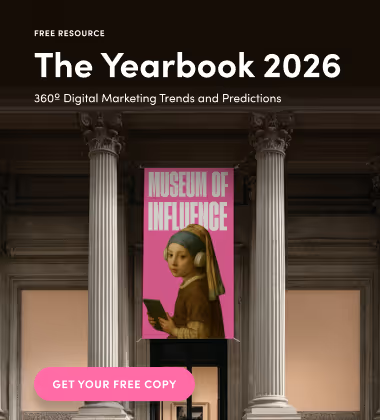Part 1: The Technological Revolution
In the first of this 3 part series, we discuss the technological revolution and genesis of social media.
Is social media good?
This is a question that is being furiously debated by many people in many circles, as we attempt to reconcile the impact of social media on society.
But before we delve into the question, let’s address how we got here…
The Early Stages of Social Media:
It is important to remember that social media is still in its infancy. In fact, the Internet as a whole is still a burgeoning teenager, with it’s destiny still undetermined. After all, Google was established in 1998. Facebook was established in 2004. The iPhone was brought to the world in 2007. Instagram’s sizzling media sharing app first opened its proverbial doors in October of 2010. All of these platforms have dramatically changed the media and information landscape - and they remain incredibly young.
So what was the major disruption initiated by these platforms? Simply put, they democratized information, and created a real-time global distribution network - something that would have been unfathomable a short time ago. In fact, if you could go back to the early 2000’s to show someone your modern smart phone with all it’s capabilities, their heads would have popped clean off their shoulders.
Imagine how that conversation would have played out...
“This single small device can be used for email, instant messaging, using the internet, booking hotels, flights, restaurants - booking anything, really. It can also play music, produce music, pictures, videos while sharing that media in real-time across the globe. You can also communicate with anyone in the world in real-time. And it can handle your banking, be your GPS, compass, clock, note taking device, news outlet, resource for banking, and much more”
Insert head popping off.
This technological advancement has been unprecedented, and we take it for granted! It has completely changed how we think, act, and connect. It has also changed the global economy from production and manufacturing to technology and automation. Which leads to another important point...
The Changing Nature of Education & Information:
The Early Stages of Social Media:
While all of the capabilities of a smartphone are truly amazing, there is one item that is often overlooked, and here it is… Every person with WIFI and a smartphone has access to every piece of information the world has ever known in the palm of their hand - in real time.
Wow, take a moment to breath that in.
This technology makes you more knowledgeable than any philosopher or politician the world has ever known. Now let’s think back. Historically, information could only be shared, passed down, and acquired in three ways:
1 - You read a book. A book written by someone that had knowledge or wisdom that they were willing to share.
2 - You went to school and learned from a teacher who acquired their knowledge and wisdom from books.
3 - You listened to an elder. You know, a wise sage that had ‘been there, done that’.
Knowledge used to be hard to come by, and expertise was a lifelong pursuit. That’s not to say it is easy to become an expert today - but it has never been easier.
There has been more content produced in the last seven years than in the previous four billion. There are mentors and coaches available to you around every corner of the Internet, providing unparalleled access to their habits and decision making processes. This gives every single person with WIFI the ability to model the success of people that inspire them. So it has never been easier to broaden your knowledge base, and people are developing amazing new skills simply from watching Youtube and Instagram videos:
“Wanna learn how to install a carburetor? Watch this…”
“Want to make the perfect trifle for your dinner party? We’ll teach you how in 2 minutes.”
“Want to become an expert at dribbling a basketball? Steph Curry will teach you how.”
Shifting Generational Dynamics
This rapid change in the areas of education and information has led to a fascinating knowledge gap between generations. In the past, the older you were, the more you knew (at least generally speaking). But nowadays, young people have only ever known instant information - and they are better with technology than their parents. So the pendulum has completely swung, and in a fascinating twist of fate it is young people who are now teaching older people how to use technology.
So now that we’ve established the ridiculous power that we have access to, and the impact of technology on generational dynamics, let’s circle back to the opening question.
Is social media good?
Well, it depends on how you use it. Much like any tool, it can be used for good or bad.
A hammer can help build a house and provide shelter. But a hammer can also be used to bring harm to another individual.
Musical instruments can be used to make beautiful music that will live on forever. But when an untrained individual attempts to play music, it is insufferable.
A calculator can be used to help us create infrastructure, and solve complex problems. But for many people a calculator is a useless exercise in frustration.
So rather than asking if social media is good or bad, perhaps we need to look at how we use it. Perhaps it’s time to start shifting focus towards how social media can serve us and provide value on an individual basis.
In part 2 of the “Is Social Media Good” series, we discuss the initial purpose of social media, the perils, and how it can be channeled to serve you.



